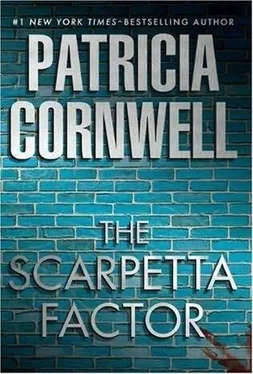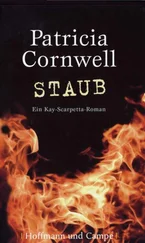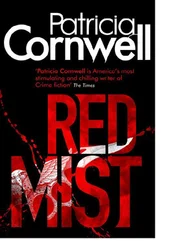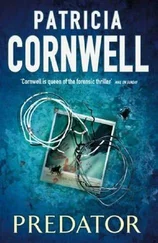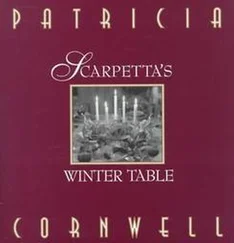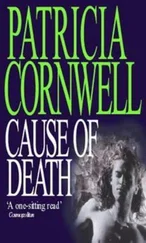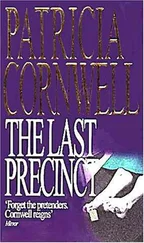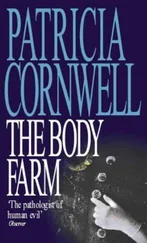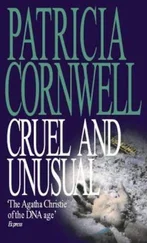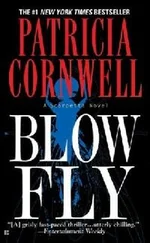Those individuals who could tell more about the Chandonnes and their network and everything that might have happened were still being rounded up by the FBI. Dodie Hodge and an AWOL Marine named Jerome Wild would soon be on the Top Ten Most Wanted List. Carley Crispin, who had left her fingerprints on Scarpetta’s BlackBerry, had retained a prominent lawyer and was no longer on the air and might never be again, certainly not on CNN. The housekeepers Rosie and Nastya were being questioned, and there were stories that Rupe Starr was going to be exhumed, but Scarpetta hoped not, because she didn’t think it would prove helpful, would be just another sensation in the news. Benton said that the cast of characters was long, these miscreants that Chandonne had recruited, and it would be quite some time before it was determined who was real, such as Freddie Maestro, and who was just another shape and form of Jean-Baptiste, such as the French philanthropist named Monsieur Lecoq.
“What a good boy you are,” Scarpetta praised Mac, thanking him profusely for his deposit.
She picked it up in a plastic bag, and she and Benton walked back across Tenth Avenue, the afternoon light almost gone. The snow was small flakes that didn’t stick, but at least it was white stuff, as Benton put it, and it was Christmas, and that was a sign, he said.
“Of what?” she asked. “Scrubbing away our sins? And you can hold this hand. Just don’t reach for my other one.”
She gave him the hand that didn’t have the plastic bag, and then he rang the buzzer outside the Two.
“If our sins were scrubbed away,” Benton said, “what would be left?”
“Nothing interesting,” she said as the door clicked free. “In fact, I intend to commit as many sins as possible when we get home tonight. Take that as a warning, Special Agent Wesley.”
Upstairs in the small kitchen, everyone crowded in because Benton was opening wine and pouring it into plastic glasses, a nice Chianti for whoever could indulge. Marino opened the refrigerator and got out sodas for Lobo and Droiden and a nonalcoholic beer for himself, and by now Bonnell had showed up, and everyone decided it was a good time to have a toast. They wandered into the Memorial Room, and Scarpetta came in last, carrying a basket of fresh bread.
“A family tradition I’d like to tell you about if you’ll indulge me,” she said. “Memory bread. My mother used to make it when I was a child, and it’s called that because when you have a piece, you’re supposed to remember something important. It can be from your childhood. It can be from any time or anywhere. So I thought we’d drink a toast and eat some bread and remember what we’ve been through and who we were, because it’s also who we are.”
“You sure it’s okay to be doing this in here?” Bonnell said. “I don’t want to be disrespectful.”
“These guys?” Lobo meant his fallen comrades, whose effects didn’t look quite so forlorn in the glow of tiny white lights. “They’d be the first ones to want us in here doing this right now. I’m tempted to fix them a plate. I remember how John loved animals.” He looked at a photograph of D’Allara while Marino was petting Mac. “We still have his snake pole in his locker.”
“Don’t think I’ve ever seen a snake in Manhattan,” Berger said.
“Only every day,” Lucy said. “We make our living off snakes.”
“People let them loose in the park,” Droiden said. “Pet pythons they don’t want anymore. One time it was an alligator. So, who gets called?”
“We do,” everybody said.
Scarpetta passed around the basket of bread and each person pinched off a piece and ate it, and she explained that the secret to memory bread was you could use anything in it you liked. Could be leftover grains coarsely ground or potatoes or cheese or herbs, because people would be better off if they paid attention to what they have and not waste it. Memories are like what you find in the kitchen, she said, all these dribs and drabs in drawers and dark cupboards, bits and pieces that seem extraneous or even bad but in fact might improve something you’re making.
“To friends,” she said, raising her glass.
Very special thanks to the following technical advisers:
Dr. Staci Gruber, director, Cognitive and Clinical Neuroimaging Core, McLean Hospital; assistant professor, Department of Psychiatry, Harvard Medical School
Barbara A. Butcher, chief of staff and director of forensic investigations, the City of New York Office of the Chief Medical Examiner
Deputy Commissioner Paul J. Browne, NYPD
Nicholas Petraco, technical leader in criminalistics, NYPD Forensic Investigation Division
Lieutenant-Commander Detective Squad Mark Torre, commanding officer, bomb squad, NYPD
Dr. Louis Schlesinger, professor of forensic psychology, John Jay College of Criminal Justice
Dr. Marcella Fierro, former chief medical examiner of Virginia
Assistant District Attorney Lisa Friel, chief of the Sex Crimes Unit, New York County district attorney’s office
The Reverend Lori Bruno, psychic and medium, of Hex: Old World Witchery, Salem, Massachusetts

***

